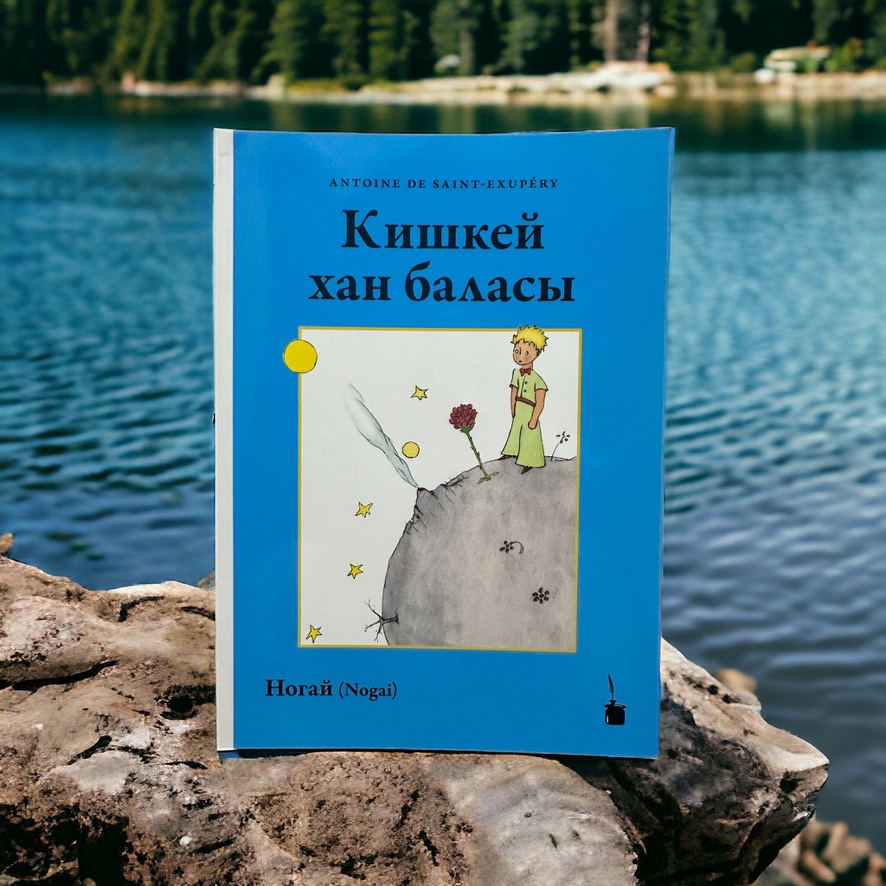Кишкей Хан Баласы (Kishkey Khan Balasy) — in Nogai.

Nogai is a Turkic language spoken primarily by the Nogai people, who are an ethnic group primarily located in the North Caucasus region of Russia and in some parts of Kazakhstan, Turkey, and Azerbaijan. This language is a member of the Kipchak subgroup of Turkic languages and has several dialects, with the Northern Nogai dialect being the most widely spoken and recognised.
Within the Turkic family, Nogai is classified as a Kipchak Turkic language, which places it in the same subgroup as languages like Kazakh, Karakalpak, and Kyrgyz. The primary speakers of Nogai reside in the North Caucasus region of Russia, particularly in the Republic of Dagestan and parts of Chechnya and Stavropol Krai. Smaller Nogai-speaking communities can be found in Kazakhstan, Turkey, and Azerbaijan.
The name Nogai is taken after Nogai Khan, the great-great-grandson of Genghis Khan, a general of the Golden Horde (also called the Kipchak Khanate). The Mongol tribe called the Manghits (Manghut) constituted a core of the Nogai Horde. The Nogai Horde supported the Astrakhan Khanate, and after the conquest of Astrakhan in 1556 by Russians, they transferred their allegiance to the Crimean Khanate. The Nogais protected the northern borders of the Crimean khanate, and through organised raids to the Wild Fields inhibited Slavic settlement. Many Nogais migrated to the Crimean peninsula to serve as the Crimean khans’ cavalry. Settling there, they contributed to the formation of the Crimean Tatars. They raised various herds and migrated seasonally in search of better pastures for their animals. Nogais were proud of their nomadic traditions and independence, which they considered superior to settled agricultural life.
The Nogai language has been written using various scripts, including Arabic script, Cyrillic script, and Latin script at different points in history. Today, the Cyrillic script is the most common writing system used for Nogai, although Latin and Arabic scripts are still employed by some speakers.
Nogai vocabulary has been influenced by neighboring languages, including Russian, due to historical interactions and the Russian influence in the region.


